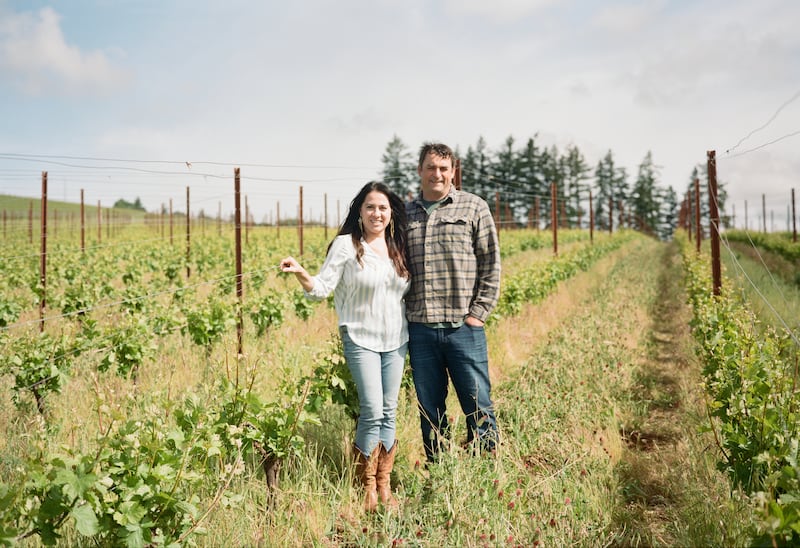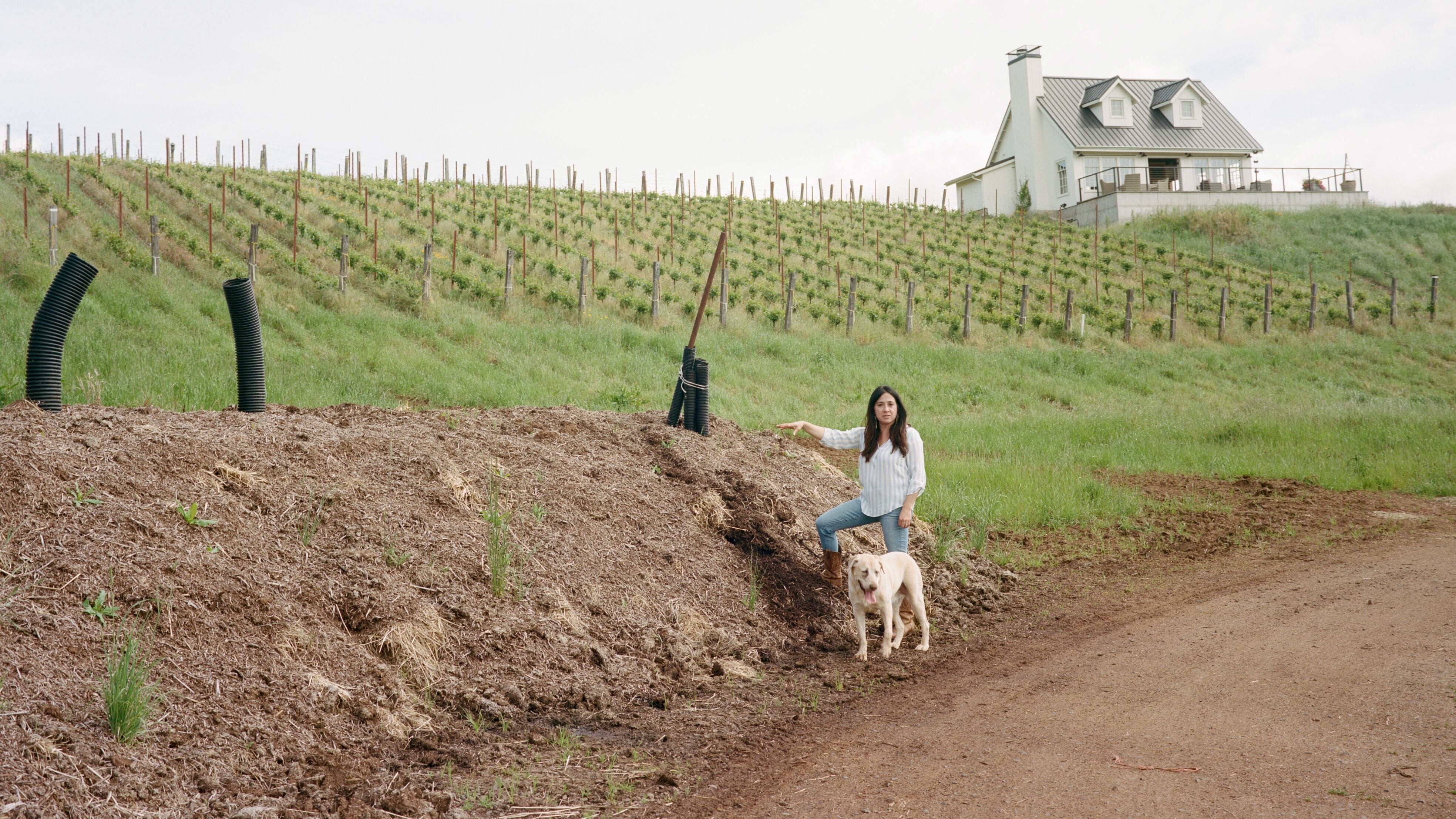When Cramoisi Vineyard co-owner Sofia Torres McKay describes the maintenance of the winery’s compost pile, you’d be forgiven for assuming she was talking about raising one of her own children.
“It’s like we do everything we can in the beginning to prepare it, and then it grows up into a teenager, into adulthood,” she says. “It kind of makes its own independence and makes its own magic.”
If the nurturing description for a mound of dirt sounds unusual, well, that’s because Cramoisi’s mound of dirt is rather abnormal. Oh, and don’t call it dirt. Torres McKay and her husband and vineyard co-owner, Ryan McKay, have some pretty strong opinions about soil—”something that is healthy, that is alive,” she says—and how that is very much not dirt for a good reason: The ground where their wine grapes grow is where quality control begins. And to cultivate the land with care, the two turn to their compost heap, which can get as large as an RV and is monitored not quite as attentively as a child, but at least as closely as the vines that produce Cramoisi’s precious fruit.

The pile’s massive size can be attributed to the vineyard itself: the overall volume of winter pruning wood from 13,000 vines. Those cuttings are ground into a fine sawdust that’s mixed with manure from an area dairy farm. Worms then get to work breaking down the waste.
Rather than turning the mixture with a tractor to assist with aeration and oxygen supply, Torres McKay inserts large corrugated tubes into the stack (“it looks like a cake with candles,” she says), which allow it to get rainwater and air, speeding up decomposition. Torres McKay also takes the temperature of the compost regularly to make sure that it’s warm enough to kill off any potential weed seeds or pathogens.
The resulting blend, teeming with healthy organisms, is deposited by hand to each plant, allowing Cramoisi to eschew pesticides and herbicides, which is not only beneficial to the environment but also the vineyard workers.
“When the people are happy, when you practice healthy practices and you don’t put poison—you don’t put any chemicals that may go into their hands, their bodies—it’s important,” Torres McKay explains. “We believe that we have to take care of other people to be 100% sustainable.”
Their methods produce one other not so insignificant bonus: great-tasting wine.
“It’s a little more elegant. It stays longer on your palate. It’s more playful,” Torres McKay says. “Maybe I’m getting a little bit crazy, but I just want to talk about how it’s a live organism. And the happier the environment is for that live organism, the better it will taste.”
See the rest of Willamette Week’s Best of Portland 2023 here!
